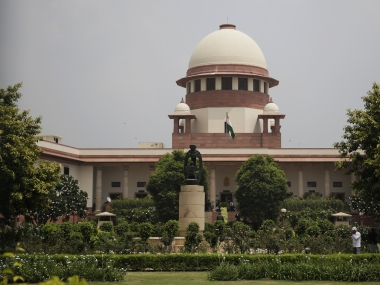The Supreme Court on Wednesday, hearing a set of pleas demanding an investigation into the Rafale deal, reserved its order after the Attorney General KK Venugopal called Indian Air Force officials to assist the bench on understanding the urgency of signing the deal. The apex court was hearing several pleas seeking a court-monitored probe into the procurement of 36 Rafale fighter jets by the Indian government from France. Deputy Chief of Air Staff Air Marshal VR Chaudhari and two other senior Indian Air Force (IAF) officers appeared in the apex court. Venugopal, speaking on behalf of the government, said, “IAF has been writing to us that it will be difficult for them to defend our country due to the shortage of aircraft, we have fallen behind a lot.” The IAF officials were called in the apex court to tell the judges the need for obtaining the Rafale fighter jets and to establish their superiority over the current machinery available with the force. The bench comprising Chief Justice Ranjan Gogoi and Justice SK Kaul and Justice KM Joseph reviewed the pricing details of the Rafale deal submitted by the government in a sealed cover. The initial arguments were made by advocate Manohar Lal Sharma, who told the court that the inter-governmental agreement was “illegal” and sought an investigation in the matter. He told the apex court that negotiations were held after the deal to purchase 36 fighter aircraft was first announced. He also said that the attorney general should file a response to the affidavit. [caption id=“attachment_5259251” align=“alignleft” width=“380”] Representational image. AP[/caption] The apex court led by CJI Ranjan Gogoi then interacted with the Air Marshal and Air Vice Marshal of the IAF and asked them what the latest induction into the artillery of the force was to which IAF officials responded saying that it was the Sukhoi 30 fighter jet. The CJI asked the officials if the Sukhoi jet and the Light Combat Aircraft were fourth-generation planes, to which the Air Marshall replied, “I would say it is 3.5.” Thereafter, AG KK Venugopal resumed his arguments in the case and laid before the court that “for the manufacture of Rafale, HAL was given a time slot of 2.7 times of what Dassault was taking and that fact itself was a negative factor”. Venugopal then said that the offset partner has to be selected by the vendor itself. Post this, the Additional Secretary of Defence Ministry explained to the court the defence offset guidelines. Justice KM Joseph at this juncture asked that why the offset guidelines were changed in 2015. AG Venugopal addressed the issue of secrecy raised by Bhushan and said that the government’s secrecy over the price of the deal was justified. “The secrecy is with regard to weaponry and avionics. If these are disclosed our adversaries will be able to know about what weaponry and avionics we have,” Venugopal told the court. He also told the Supreme Court that this is not a matter for judicial review, and that “it is a matter for experts to decide on what weaponry is to be bought.” The apex court agreed with Venugopal’s statement and said that the pricing of the deal need not be discussed at the moment. “It needs to be debated only if the court decides that aspects on pricing need to come into public domain”, Bar and Bench quoted CJI Ranjan Gogoi as saying. Former union minister Arun Shourie, who had filed a joint plea along with advocate Prashant Bhushan and Union minister Yashwant Sinha, said that documents submitted by Dassault aviation show a different price than that disclosed by the government in Parliament. He also argued that Prime Minister Narendra Modi negotiated the deal without consulting the then defence minister Manohar Parrikar. “Even two days before the deal was announced by the prime minister on 10 April, 2015, the then foreign secretary had gone on record to say that talks between Dassault Aviation and Hindustan Aeronautics Limited (HAL) were underway.” Bhushan, in his comments, said that that the BJP-led Centre did not meet the conditions required to go through with an inter-governmental agreement. He claimed that the number of fighter jets were reduced from 102 to 36 because Modi wanted to give it to Reliance Industries, a company that “has no experience manufacturing aircraft and defence equipment”. Speaking about the price of the deal, Bhushan said that the government is “hiding” behind the secrecy agreement as part of the deal, because the cost had already revealed to Parliament twice. “There cannot be any security issue regarding the pricing, when they have announced it in parliament. It is a bogus argument when they say price can’t be disclosed because of secrecy,”
Live Law quoted him as saying before he closed his arguments. Vineet Dhanda, who had also filed a petition in the court, was also present at the hearing. Bar and Bench quoted his legal counsel as asking: “How can the prime minister make a statement regarding purchase of aircraft before the agreement was finalised?” With inputs from agencies and Bar and Bench
Commencing the hearing on pleas seeking a court-monitored probe into the procurement of 36 Rafale fighter jets by the Indian government from France, the Supreme Court questioned Indian Air Force (IAF) officials on Wednesday.
Advertisement
End of Article


)

)
)
)
)
)
)
)
)



